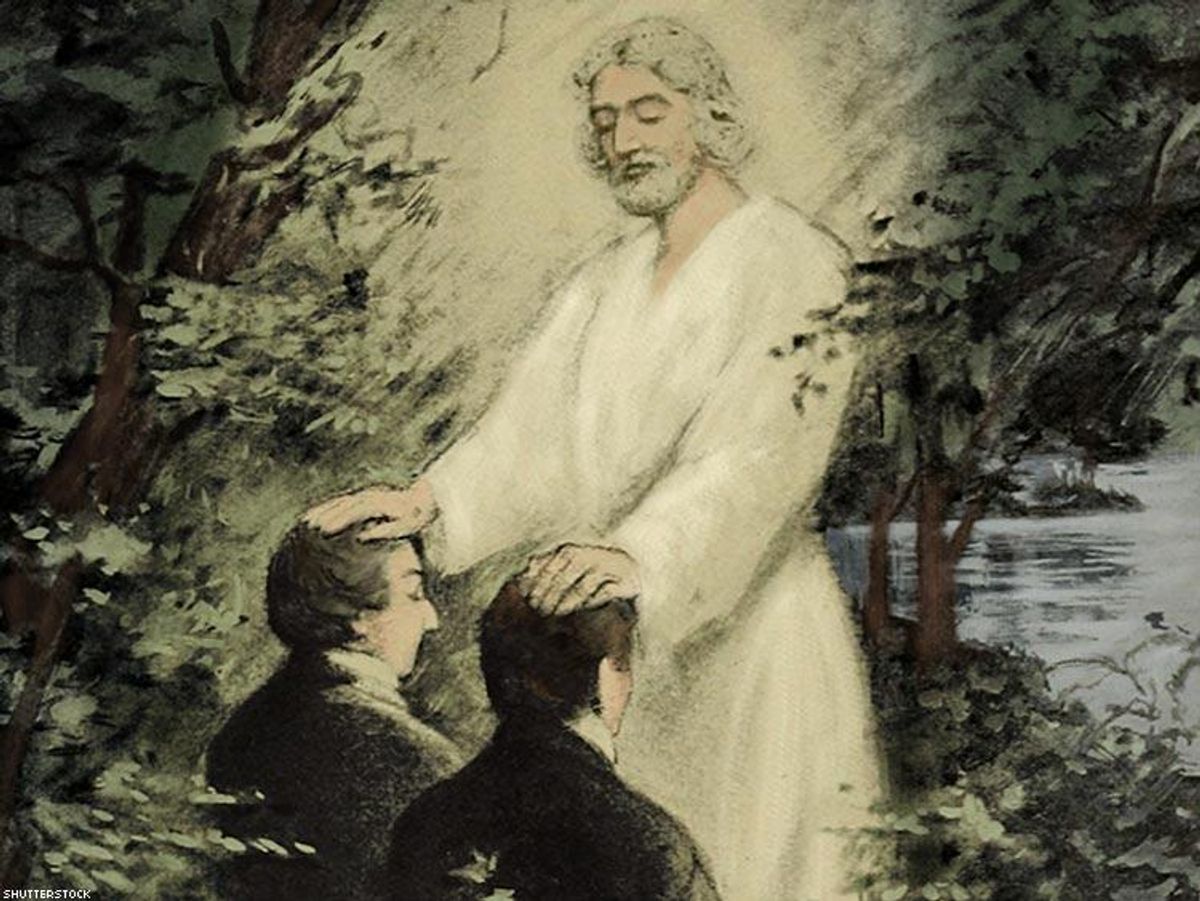Since the time we were cave dwellers, membership and participation in a community has meant survival for humankind, especially the most vulnerable among us. For today's youth, there is a constant need for social connection, whether it's through texting, social media apps, or online chat rooms. Membership in a community can result in greater ease of access to numerous resources that can not only meet physical needs but also provide social and emotional support during times of struggle.
Like any spiritual community, the Church of Jesus Christ of Latter-Day Saints (the Mormon Church) can offer a sense of belonging to its LGBTQ members through church gatherings, ceremonial or service activities, and spiritual fulfillment. These connections would result in the creation of strong social networks and would help members build the resilience necessary to protect against life's adversities. However, like any institutionalization of homophobia, such as California's Proposition 8, the Defense of Marriage Act, or the defeat of Houston's Equal Rights Ordinance, the new Mormon doctrine revealed in November effectively marginalizes LGBTQ individuals, casting them out of the community for engaging in relationships, and may be detrimental to their optimism for seeking a brighter future.
While the Mormon policy does not directly address any action to be taken against LGBTQ youth, the psychological impact of the policy's underlying message is likely very damaging to young people. Explicitly calling for uniform disciplinary action upon adults in same-sex relationships, the doctrine denies their children the enriching and validating sense of community and inclusion that can come from the benefit of full integration into church society (such as baptism, ordination, and missionary service), or at least delays their access. When children living with parents in a same-sex relationship turn 18, they will obtain the option for baptism into the community only if they complete the unimaginably painful requirement of publicly renouncing the family that raised them and to which they've become strongly attached.
The church places enormous value upon family and conformance to community standards, but the barriers unique to this singled-out group of young people inhibit a sense of belonging in the family and community and can contribute to chronic inner turmoil that can result in negative physical and mental health outcomes.
The confusion resulting from isolation experienced by LGBTQ youth who are still developing an understanding of their identity is also very damaging. Observing these conversations that endorse rejection and excommunication of adult LGBTQ members, LGBTQ youth likely feel horrified at the thought that this could be the future they'll face if they are to live as their authentic selves and engage in intimate relationships. Rather than supporting the formation of an identity that is congruent with the "true self" and will lead to greater self-esteem, confidence, belonging, and a propensity to succeed in emotionally fulfilling intimate relationships, the church's policy directs people to repress their natural drive for experiencing romantic love and family, which will more likely to lead to despair. In some cases this starts with damage to self-esteem and feelings of shame and isolation, which can make the young people feel burdensome to their families and can then grow into a more pervasive depression and anxiety. This lends to vulnerabilities including poor school performance, difficulty relating to others, and the development of poor coping strategies, such as substance abuse or other self-harming behaviors -- including, in some situations, suicide ideation.
Many LGBTQ young people are actually quite resilient, and suicide ideation should not be considered common or the natural result of vulnerability, but there is a need and an opportunity for intervention to mitigate these effects. Many affirmative resources are available to meet spiritual, social, and emotional needs and improve outcomes.
Current mental health research and training teaches that LGBTQ people have greater capacity to experience joy and live emotionally fulfilling lives when they can accept themselves for who they genuinely are, make meaningful connections with others who affirm their identities, and cast off the shame of internalized homophobia resulting from chronic messages and experiences of societal rejection and marginalization. In therapeutic settings, mental health professionals further identify the common struggle people have in viewing themselves as worthy of accepting love and capable of loving others. Those providing services to LGBTQ church members are therefore placed in a complicated situation. Ethical practice would support these young folks in seeking a wholehearted experience of self-love and loving relationships, if that is what they desire, but it is in sharp contradiction to the teachings of the church. It is crucial, therefore, to refrain from demonizing the church or its beliefs, as the church can be an amazing source of support and comfort in so many ways. But to improve psychosocial outcomes for LGBTQ youth, it is also imperative to maintain pressure on the church to continuously monitor and reexamine policies that intentionally marginalize LGBTQ people for engaging in loving relationships.
At the Trevor Project, we are answering phones, chats, and texts from youth who need us when they have no one else. Through our supportive online social network, TrevorSpace.org, we are helping youth build connections and find a sense of belonging that they would otherwise have difficulty finding. Resources like the Family Acceptance Project and Affirmation can serve as sources of support as well. With mentors, networks, and safe LGBTQ spaces that can validate these young people's experiences, they are more likely to feel less alone and think more positively about their futures. The active involvement of one affirming and supportive adult can save a young LGBTQ life. Let them know the Trevor Project is here 24/7 for LGBTQ youth at (866) 488-7386 and TheTrevorProject.org. Their future is bright, and they are never alone.
David W. Bond, vice president of programs at the Trevor Project, is a licensed clinical social worker and a board-certified expert in traumatic stress.


















































































